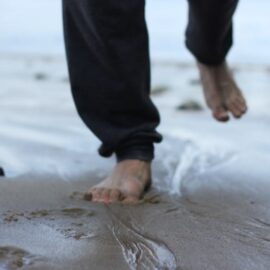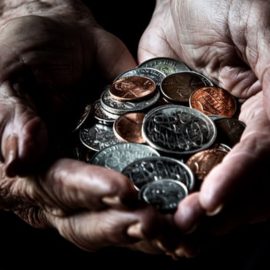

This article gives you a glimpse of what you can learn with Shortform. Shortform has the world’s best guides to 1000+ nonfiction books, plus other resources to help you accelerate your learning.
Want to learn faster and get smarter? Sign up for a free trial here .
Are you in recovery from addiction? What are the best books to read about addiction recovery?
Any type of addiction—whether it’s drugs, alcohol, or technology—is a serious disease to overcome. Millions of people suffer from addiction, and it can be hard to sort through the overwhelming amount of resources to find a recovery method that’s right for you.
Here are some of the best addiction books that cover all kinds of addiction.
Books for Drug/Alcohol Addiction
Recovering from a drug or alcohol addiction is a lifelong process. Sobriety requires commitment and motivation, but sometimes you might be tempted to give in to your addiction. This is where self-help books come in. Hearing stories of others who are in recovery is helpful when you feel discouraged. Additionally, experts in psychology and brain science have sound advice for addiction recovery.
To help you on your journey to sobriety, we’ve rounded up the best books about addiction for you to read.
Alcoholics Anonymous: The Big Book
Alcoholics Anonymous is the most well-known program for sobriety. It has nearly two million members worldwide, and it’s the default treatment for alcoholism in US healthcare.
The Big Book is Alcoholics Anonymous’s primary text. It originated the “twelve-step program” now used widely to treat addictions outside alcohol. In this book, you’ll learn the principles behind AA and why they work for alcoholics, and the book’s persuasive techniques.
Quit Like a Woman
If the only alcohol addiction recovery program you’ve ever heard of is Alcoholics Anonymous, if you think drinking is normal and even healthy, and if you think alcoholism is a disease suffered by an unfortunate few, long-term recovering alcoholic Holly Whitaker is here to set the record straight. In Quit Like a Woman, Whitaker contends that we as a society see alcohol, addiction, and recovery all wrong—that is, exclusively through a masculine, patriarchal lens. This means we misunderstand what addiction is, what causes it, and how to treat it, especially for women.
Whitaker offers an alternative take on alcohol addiction. She explains how alcohol is always bad for you and how alcohol companies perpetuate the belief that you should be able to enjoy alcohol in moderation. She also offers a glimpse into her own journey to sobriety and presents a feminine approach to recovery.
The Easy Way to Stop Drinking
Addiction can be hard to conquer when you’re always surrounded by your temptations. Whether you’re at a party, dinner, or grocery store, alcohol is everywhere. But you shouldn’t just worry about the physical temptation of alcohol—you also need to worry about the psychological desire.
In The Easy Way to Stop Drinking, Allen Carr provides a step-by-step guide to removing the psychological need to drink. His approach is quite simple: rather than changing one’s behavior toward the desire, Carr aims to change the desire. With his Easyway method, you can enjoy social occasions without feeling stressed and deprived.
Integral Recovery
If you’re wondering how to take your recovery to the next level, look no further. In Integral Recovery, John Dupuy takes a holistic approach to living a sober life. Here, you’ll learn life-changing practices that will transform your journey from recovery to Integral Recovery.
Integral Recovery doesn’t ignore the past to plan for the future. Dupuy uses successful pre-existing alcohol and drug treatments and combines them with modern approaches to sobriety to create the ultimate rehabilitation plan. Along the way, you’ll learn how to become your best self outside of your addiction.
The Big Fix
In this harrowing memoir, Tracey Helton Mitchell reflects on how she went from a homeless heroin addict to a clean mother of three. Mitchell was a heroin addict for nearly a decade and was living on the streets of San Francisco’s Tenderloin District when she decided to get clean.
The Big Fix describes what she learned in her recovery journey, including how to rekindle broken relationships and handle money. She also exposes the horrible conditions women must endure if they suffer from substance abuse. Although her journey was hard, Mitchell’s story offers hope that recovery is possible.
Books for Other/General Addictions
Drugs and alcohol aren’t the only substances people get addicted to. Many people struggle with addictions to food, sex, pornography, and the Internet. These are known as behavioral addictions. The following books about addiction act as sources of inspiration.
The Willpower Instinct
Most people think of willpower as a virtue, an admirable trait that we strive for but don’t always achieve. But science tells a different story. Willpower—the ability to exercise self-control when you need it—is an instinct that’s wired into our brains.
Yet it seems like willpower vanishes at crucial moments, like when your coworker shows up with a box of donuts. To harness your innate willpower, you need to understand what factors make you give up your self-control. In The Willpower Instinct, Stanford University psychology professor Kelly McGonigal details how our natural willpower gets compromised by stress, distraction, lack of sleep and exercise, and a host of other factors. Using the latest psychology and neuroscience research, she offers strategies to help us defeat procrastination, control cravings, and achieve our goals.
Dopamine Nation
Is there something you indulge in more often than you’d like? Maybe it’s checking social media, eating junk food, or binging shows and movies on streaming platforms. In Dopamine Nation, addiction treatment specialist Anna Lembke explores what causes these behaviors and how you can take back control. She explains both the neurological and emotional causes of overindulgence and provides clear actionables to help you stop.
In this book, you’ll learn about how pleasure and pain motivate you to consume, strategies for keeping your brain’s natural chemicals in balance, and solutions to the psychological reasons why many people have a hard time stepping away from their favorite indulgence.
Hooked
Modern technology has us addicted to its use. While you might be aware that you’re addicted to your phone or favorite apps, you might not know exactly how you got addicted. It just happened without you noticing it. Companies that are better at building usage habits are at a clear economic advantage. When hooked, users return to a product without expensive marketing—they return of their own volition, spurred by internal triggers rather than external prompting. People who feel lonely automatically open Facebook. Employees who want to procrastinate automatically open their emails. Better access, data, and speed are making things more addictive.
Hooked provides a useful framework on how tech products build lasting habits in their users. Understanding this is useful for product designers, but also helps users know if they’re a victim of addictive tech products.
Codependent No More
In Codependent No More, Melody Beattie explores codependency and how it affects people’s lives. According to Beattie, codependency is a stress-induced pattern of behavior that dictates how a person treats another and how she allows that other person to influence her. The codependent obsesses over the other person and seeks to control them.
A self-help classic and the book that inspired codependency 12 Step Programs around the country, Codependent No More provides explanations, advice, and compassion for people struggling with codependency. Furthermore, she shows how codependency can ruin lives just like addiction, and how, just like addiction, it can be overcome.
Rewire
At its core, addiction is a bad habit that’s hard to break. These habits only get worse because of self-sabotaging behavior. In one of the best books about addiction, psychologist Richard O’Connor reveals that we have two brains: one is our conscious mind and the other is an automatic mind that makes decisions without us knowing it. Our automatic self is the part of our brain that allows us to get addicted to destructive patterns.
Rewire uses different fields of psychology and neuroscience to help you rewire your brain to break bad habits. That way, you can live a more productive life that isn’t consumed by harmful behaviors.
Final Words
If you or a loved one is struggling with an addiction, you are not alone. These books are reminders that you can conquer this disease and be the best version of yourself. It’s important to remember that addiction is a complex disease and recovery is a long process. Education and perspectives on the subject are just the first steps in your journey, and sobriety is not impossible.
Did we miss any of the best books about addiction? If so, leave them in the comments below!

Want to fast-track your learning? With Shortform, you’ll gain insights you won't find anywhere else .
Here's what you’ll get when you sign up for Shortform :
- Complicated ideas explained in simple and concise ways
- Smart analysis that connects what you’re reading to other key concepts
- Writing with zero fluff because we know how important your time is






